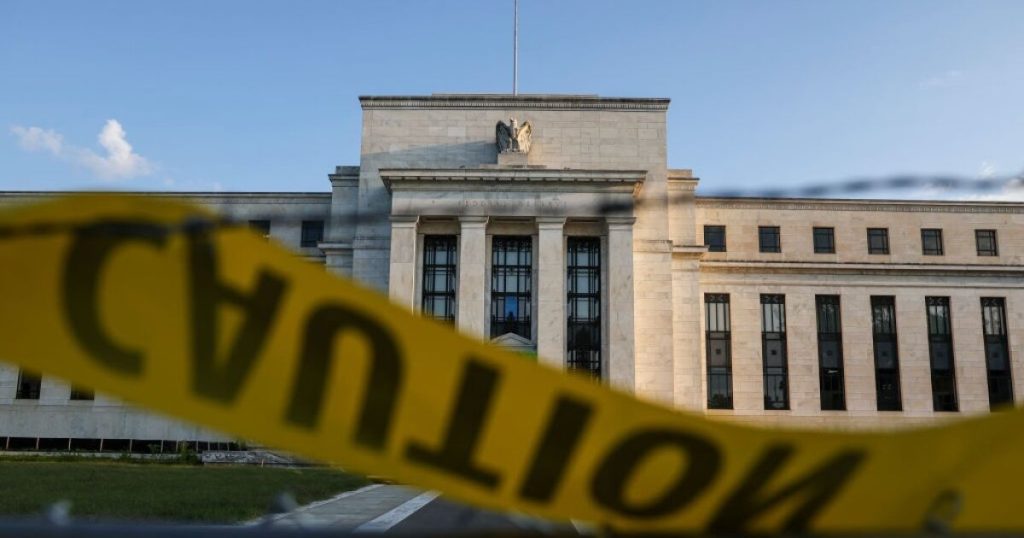To carry out international transactions and be able to move millions of dollars generated from trade and remittances, Nicaraguan banks have links with foreign banks through “correspondent” contracts, which allows them to be active in the known banking interconnection system. like Swift, and which is governed by global financial control policies.
These financial links allow local banks to receive electronic transfers, family remittances, so that their clients in Nicaragua can pay or collect goods and services, exports and imports, and also allow banking entities in Managua to extend debit and credit cards that are linked to the transnational Visa, MasterCard or American Express.
In the specific case of Nicaragua, according to a review that the team of Article 66 made on the websites of the seven financial institutions, authorized and regulated by the Superintendency of Banks, at least five of them have public their relationship with 54 correspondent banksdistributed in 15 countries.
Of the 54 correspondent banks that serve as allies of national banking, 17 are in the United States; 8 in Panama; 7 in Spain; 3 in Germany; 3 in Guatemala; 3 in El Salvador; 3 in Mexico; 2 in Canada; 2 in England; and a correspondent in each of the following countries: Switzerland, Colombia, Brazil, France, Costa Rica and Nicaragua.
He Bank of Finance (BDF) maintains correspondents with four foreign banks: in the USAits correspondent banks are Bradesco Bank (Bradesco Bank) and Ocean Bank (Banco del Oceano), to receive and send transfers in dollars. In Europeits connection is with Banco Sabadell SA. and CaixaBankboth from Spain, to receive and send transfers in euros.
For its part, the financial institution Lafise Bancentro maintains correspondents for international transfers in dollars with Citibank (City Bank of New York) and JPMorgan Chase & Coconsidered the largest bank in the United States, in terms of market capitalization. To transfer euros, Lafise works with European banks Commerzbank, considered the fourth largest bank in Germany and with Banco Bilbao Vizcaya Argentaria SA (BBVA) of Spain.
Related news: Ortega dictatorship will force banks to open accounts for those sanctioned
Meanwhile, the Avanz bankowned by the Pellas Group, maintains correspondents in the United States with Bradesco Bank (Banco Bradesco), and with Terrabank, both from Miami, Florida.

For its part, the Production Bank (Banpro)part of the Promerica group, makes its international transfers through correspondents with Deutsche Bank Trust Company Americasbased in New York; Bank of AmericaFlorida; JPMorgan Chase & Co.
Also, with Commerzbank Representative Office PanamaSA; with Terrabank from Miami: with Banco Bilbao Vizcaya Argentaria (BBVA), based in Madrid, Spain; and finally with International Bank of Costa Ricawith an office established in Panama City, Republic of Panama.

While the bank Ficohsaone of the smallest entities in Nicaragua, maintains correspondents with 37 banking entities in 15 countries around the world.
In Canada with Scotia Bank and Royal Bank of Canada; in the United States with Citibank NA, Bank of New York Mellon, Exim Bank, US Century Bank, Wells Fargo and Easter bank.
In Panama Bladex, Global Bank, Banco Aliado, Tower Bank, Banco General, Multibank. In Guatemala with Banco Industrial de Guatemala, Banco G&T Continental, Banco Reformador.

In El Salvador with Banco Agrícola Comercial, Banco Salvadoreño and Davivienda El Salvador. In Mexico with Banamex, ScotiaBank Inverlat, and Banco del Bajío. In England with HSBC and Standard Chartered.
Furthermore, in Germany with Deutsche Bank and Commerzbank; in Nicaragua with Banco Lafise Bancentro. In Switzerland with Banque de Commerce et Placements – BCP. In Colombia with Bancolombia; in Brazil with Itau bank. In Spain with BBVA, Banco Popular Español-BSCH and with Banco Sabadell. While in France it is with Natexis Banques Populaires, BNP Paribas, and in Costa Rica with Banco Interfin.
In the case of the Bank of Central America (BAC) and Banco Atlántida, with Honduran capital; They also maintain correspondents with foreign banks but these do not have public institutions with which they relate.
Why are banks at risk of bankruptcy?
The recently approved “Law to protect Nicaraguans from external sanctions and aggression”, known as the “Law of those sanctioned” will end up causing a true “earthquake” in the national financial system by forcing correspondent banks, especially those in the United States. United States, Canada, Europe or Switzerland, to cancel their correspondents with Nicaraguan banks and the flow of millions of dollars to the country would be severely affected, analysts warn.
Nicaraguan banking would practically be reduced to “local payment windows” since none of those foreign banks with businesses established in the United States would dare to challenge the sanctions imposed by the American Office of Foreign Assets Control (OFAC). , which in its appointments to those sanctioned by the Sandinista regime has made it clear that no public or private institution, or natural persons from that country, can have business relations with sanctioned persons.
This measure implies that Nicaraguan banks that maintain commercial relations with US banks cannot provide services to those designated as “international criminals”, which in the case of Nicaragua are all officials and political operators of the Sandinista regime, among whom are the Vice-dictator Rosario Murillo herself and four of her children, who are part of the network of corruption and repression of the Ortega-Murilo family dictatorship.
Despite this, the Law of those sanctioned, approved by Ortega’s deputies on November 25, in its article 4, orders the “Inapplicability of sanctions in Nicaragua” and declares them null, and, consequently, in its article 5, obliges the “regulated” institutions, that is, the national banks, to reopen the accounts and all banking services to the sanctioned officials of the regime, and even establishes the possibility of lawsuits against the financial institutions for “damages and damages.
And what is worse, the Ortega Law threatens banks with sanctions and even criminal proceedings (jail) for “treason to the country” if they do not comply with the provisions of the new regulations.
The coming earthquake
Faced with such imposition and threats, everything seems to indicate that the banks, especially now that Daniel Ortega has already ordered to publish in the official newspaper La Gaceta, from last Monday, November 25the regulations, and which according to the text, came into effect from that same day, would be waiting for the final decision of their international correspondents and make the decision: or reopen the accounts of those sanctioned, to avoid closures or jail , or they are exposed to financial isolation and the suspension of correspondents.
An expert on the international financial system, on condition of anonymity, said that the impact on the flow of currency to Nicaragua from abroad, mainly from the US and the EU, will be deadly, interrupting transactions worth billions of dollars that have to do with remittances, international trade and payments.
«This measure (the Sanctioned Law) will practically force them (Nicaraguan banks) to be removed from the international SWIFT system (Worldwide Banking Communication System) as long as the private bank defrosts the property and assets of those sanctioned by order of the dictatorship. », says another analyst under the reservation of his identity.
SWIFT is a “fundamental” component of the global payments system. Most banks in the world belong to that system to carry out their transactions.
Related news: Ortega deputies approve law that protects those sanctioned and endangers banks
The specialist also pointed out that the impact on Nicaragua’s economy would be so strong that even transactions as diverse as those established through online payments for streaming services and platforms such as Netflix, Prime Video, Disney, Amazon would be affected. , PayPal, Doradobet, among others.
These types of payments and transactions on digital platforms would be affected because they are made by card, and a cut would occur if the Visa, MasterCard or American Express companies also decide to cancel the Nicas banks, something that will most likely occur because these companies would have to comply the sanctions.
In addition, “the country risk will increase, to the point that it is likely that with these decisions of the regime, the IMF will change its position with respect to Nicaragua,” said the expert.
The analyst maintains that the Managua regime is proceeding “against all financial logic” because risking the “total isolation” of the Nicaraguan banking system is something that does not make any sense.
“Practically, Daniel Ortega wants banks to operate locally only, which greatly harms the country and has many negative consequences and impacts,” he said.
















